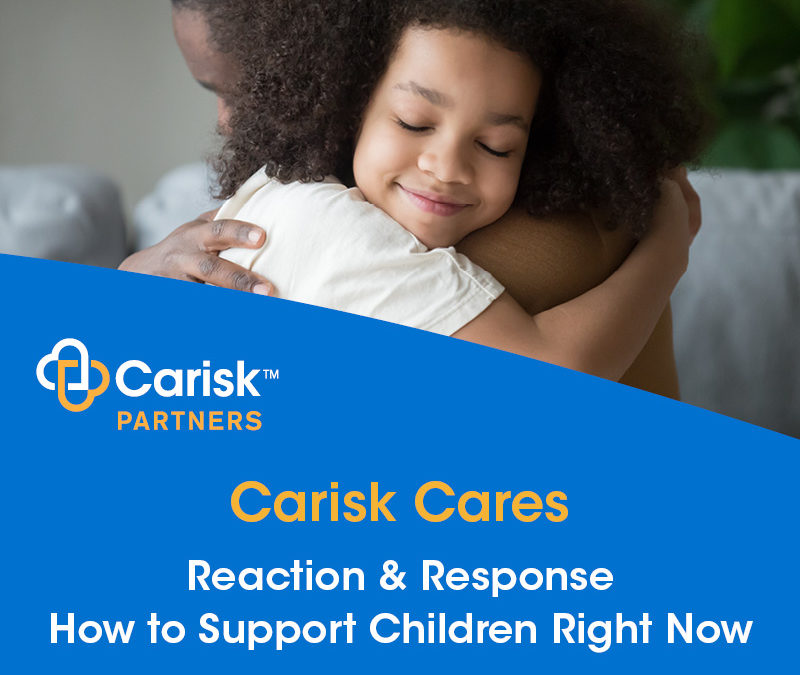David Vittoria, LCSW, MCAP, ICADC, NCAC II
Children react, in part, based on what they see from the adults around them. When parents and caregivers deal with everything that’s going on calmly and confidently, they can provide the best support for their children. Parents can be more reassuring to others around them, especially children, if they are better prepared.
Here are some common reactions to the COVID-19 outbreak, according to a child’s age, and the best ways we can respond:
Preschool
Common Reactions
- Fear of being alone
- Bad dreams
- Speech difficulties
- Loss of bladder or bowel control, constipation, bedwetting
- Appetite changes
- Temper tantrums, whining or clinging behavior
Helpful Responses
- Patient and tolerance
- Provide verbal and physical reassurance
- Encourage expression through play, reenactment and storytelling
- Allow short-term changes in sleeping arrangements
- Plan calming, comforting activities before bedtime
- Maintain regular family routines
- Avoid media exposure
School-Age (Ages 6-12)
Common Reactions
- Irritability, aggressive behavior
- Clinging, nightmares
- Sleep/appetite disturbance
- Physical symptoms (headaches, stomach aches)
- Withdrawal from peers, loss of interest
- Competition for parents’ attention
- Forgetfulness about chores and new information learned at school
Helpful Responses
- Patient, tolerance, and reassurance
- Play sessions and staying in touch with friends via phone, text and internet
- Regular exercise and stretching
- Engage in educational activities (workbooks, educational games)
- Participate in structured household chores
- Set gentle but firm limits
- Discuss the current outbreak and encourage questions, include what is being
done in the family and community - Encourage expression through play and conversation
- Maintaining family routines
- Limit media exposure
- Encourage sharing about what they have seen/heard
- Clarify misinformation
Adolescent (Ages 13-18)
Common Reactions
- Physical symptoms (headaches, rashes, etc.)
- Sleep/appetite disturbance
- Agitation or decrease in energy, apathy
- Ignoring healthy behaviors
- Isolating from peers and loved ones
- Skipping school (even online)
Helpful Responses
- Patient, tolerance, and reassurance
- Encourage continuation of routines
- Encourage discussion about COVID-19 with peers and/or family (but don’t force)
- Stay in touch with friends via phone, text, internet, video games
- Participate in family routines, including chores, supporting younger siblings, and planning strategies to promote healthy behavior
- Maintain regular family routines
- Limit media exposure
- Encourage sharing about what they have seen/heard
- Clarify misinformation
References:
- Psychological First Aid for Students & Teachers – http://rems.ed.gov/docs/HH_Vol3Issue3.pdf
- www.healthychildren.org





